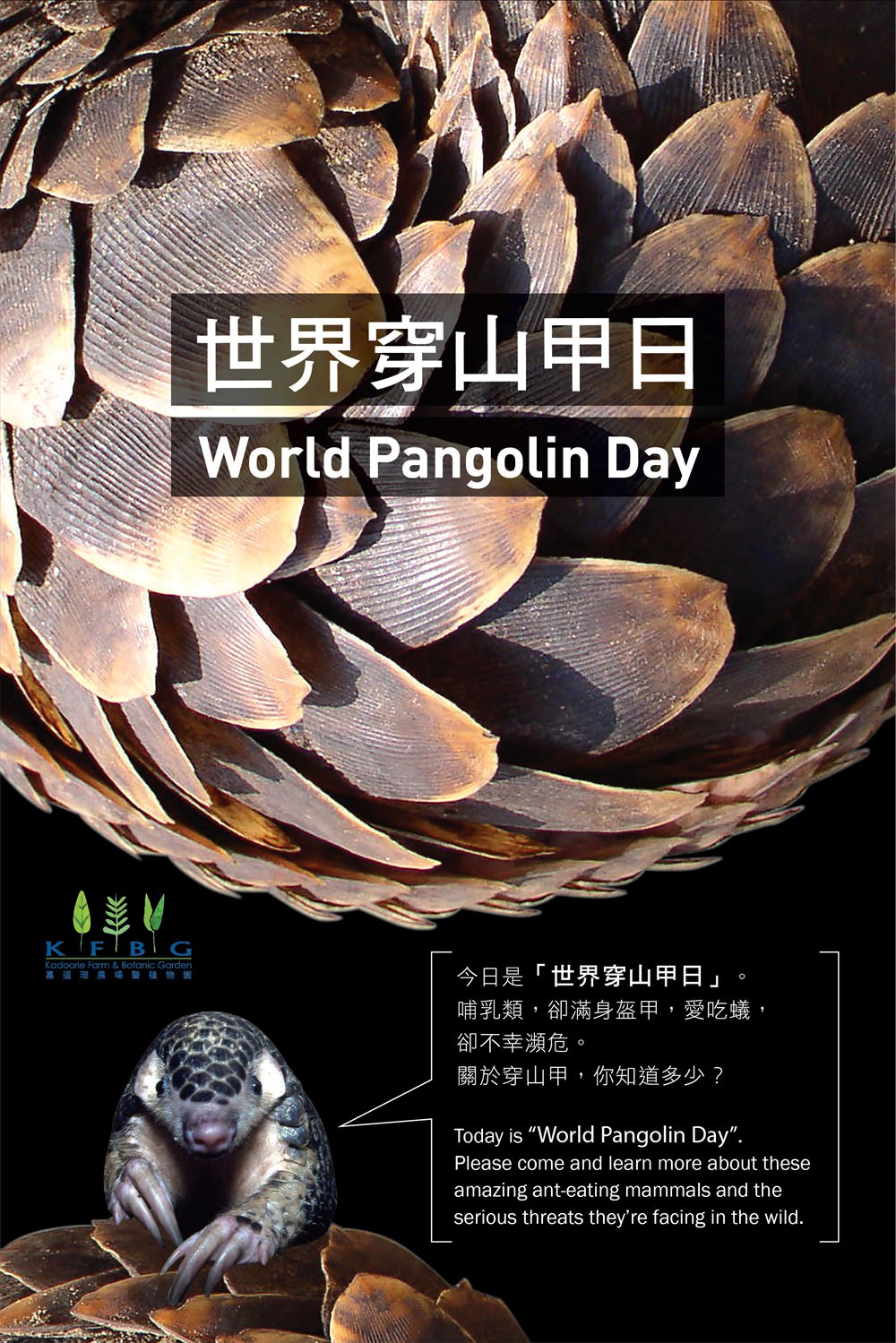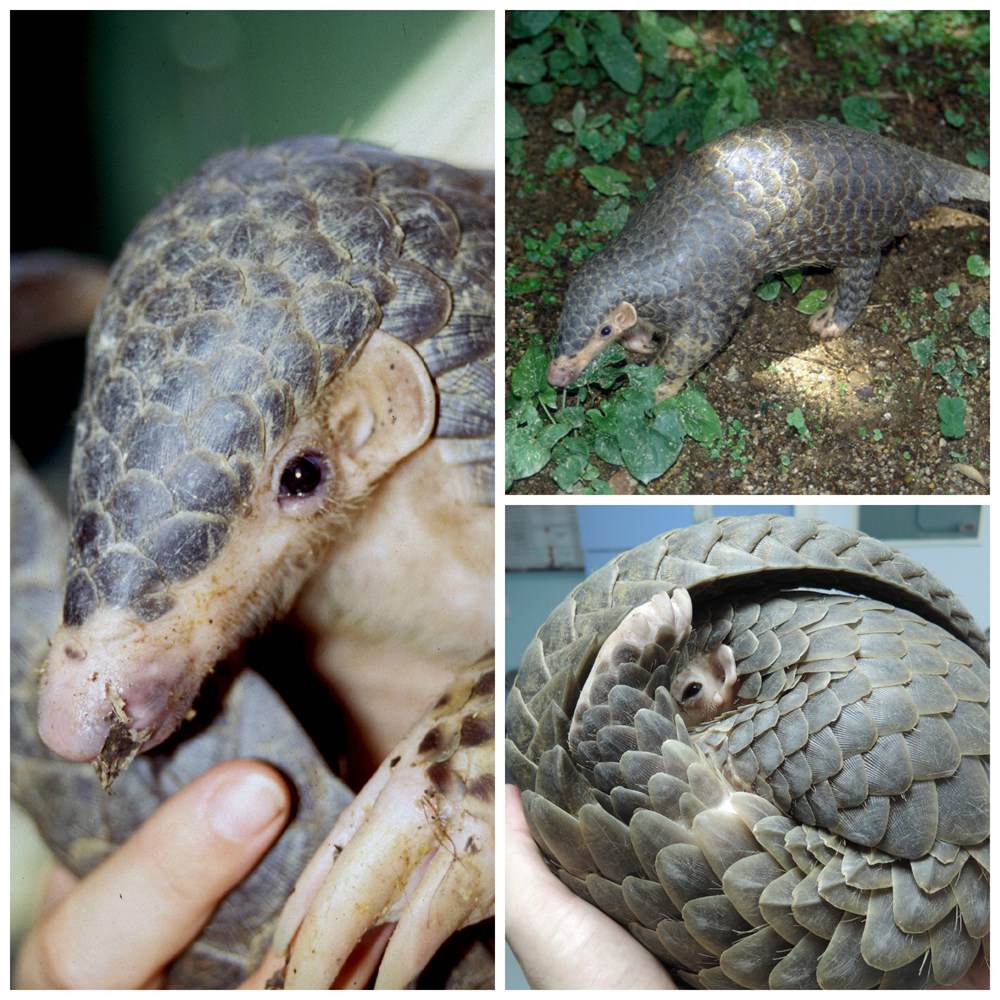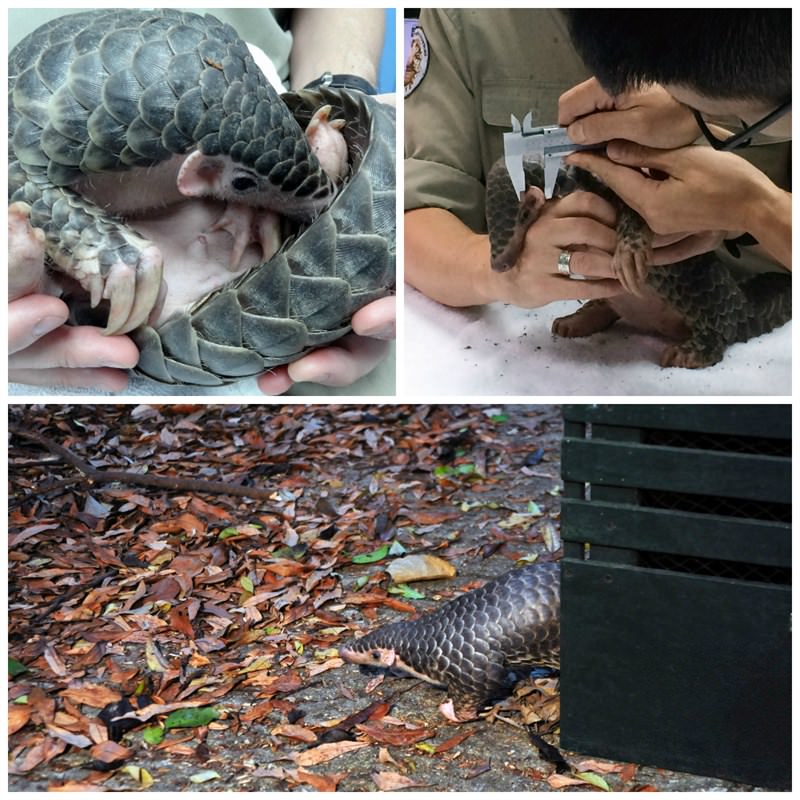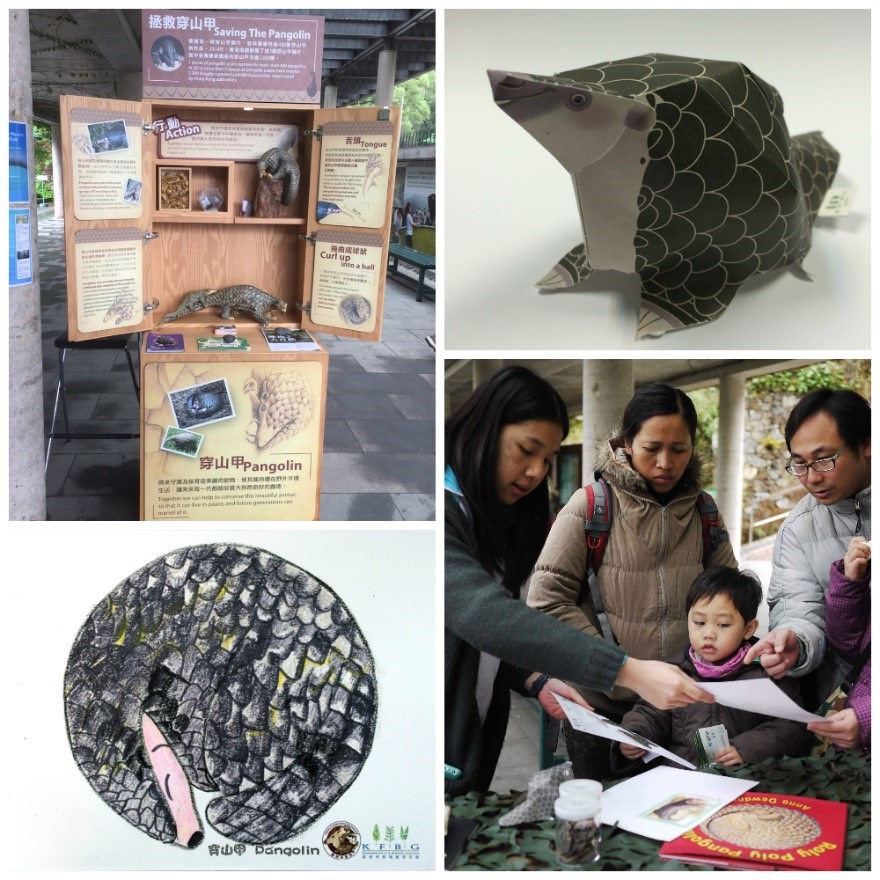World Pangolin Day 2019

The eighth “World Pangolin Day” takes place on the coming Saturday, 16th February.
We are celebrating this meaningful day by sharing some stories, photos and interesting facts about pangolins. You are welcome to KFBG to learn more about this endangered animal by visiting our pangolin ambassador booth, and participating in pangolin paper toys making.
There are eight pangolin species in the world. Four can be found on the African continent and the other four in Asia. The Chinese Pangolin (Manis pentadactyla) is native to Hong Kong and is a protected species (under the Wild Animals Protection Ordinance Cap 170). It is listed as critically endangered on the IUCN Red list due to massive and unsustainable illegal trade for meat and scales in Southeast Asia.
Interesting Facts about Pangolins

- Pangolins, also known as scaly anteaters, are covered in hard, plate-like scales. They are insectivorous (feeding on insects) and are mainly nocturnal.
- When threatened, they curl up into a tight ball. This is a defensive mechanism that helps to cover the more vulnerable areas of the pangolin’s anatomy.
- They do not have teeth and are unable to chew. Instead, they have long sticky tongues for catching ants, termites and other insects. They can constrict their ears and nostrils to keep insects out while they are feeding.
- Female pangolins usually carry their babies on the tail. When the mother senses danger, the baby quickly slips under her and is protected when she rolls up her body.
- Due to their secretive, solitary, nocturnal habits, they are rarely observed and there has been little research on their population densities. However, all species are thought to be in decline, especially the Asian pangolins.
Pangolins and Traditional Chinese Medicine

Wild pangolins have been hunted and poached as a source of food in Asian and African countries for many years. However, in China and Vietnam, pangolin meat is regarded as a luxury wild meat dish. Pangolin scales, which are used in Traditional Chinese Medicine (TCM) to relieve pain, are traded heavily in Asian countries. Even though pangolins are protected by law in many countries, the scales are still prescribed to disperse blood stasis and reduce swelling. There is no scientific proof of the claimed medical properties of scales. In fact, they are made of the same material as our finger nails, keratin.
One of the biggest pangolin trafficking cases in China was reported in early November 2015. Customs officials in southern China’s Guangdong province seized 2,674 frozen pangolin carcasses (total weight of 11.5 tonnes). On 17th March 2015, about 2 tonnes of pangolin scales were seized by Hong Kong Customs from a container in Kwai Chung. The seizure was estimated to be worth 10 million Hong Kong Dollars.
The “IUCN Species Survival Commission (SSC) Pangolin Specialist Group” warns that pangolins are now the most illegally traded mammal in the world. The conservation status of Chinese Pangolin and Sunda Pangolin is critical and all eight species are now threatened with extinction.
A Pangolin Rescue Story at KFBG

Two Chinese Pangolins were received and cared for by the KFBG Wild Animal Rescue Centre in the space of three weeks in 2017. One of them had been mauled by feral dogs. After delivery by the SPCA, our rescue team succeeded in treating her wounds and releasing her back to the wild.
On 19 May, the female pangolin was found with several wounds at her lower back, which resulted in her being kept under closed observation for two weeks. Our rescue team had developed a recipe that agrees with the species’ taste buds and energy needs but we had limited success with the pangolins feeding well in captivity. The best action for rescued pangolins is to return them as soon as possible to the wild where they can hunt their natural prey, ants and termites, and gradually build strength and resilience. This is exactly what we did when we were satisfied that her wounds were healing well on 2 June.
Another pangolin, a male, was transferred to KFBG on 8 June. The sub-adult Chinese Pangolin was discovered near Sha Tin Park. We performed a checkup and found the animal to be very strong and active, and fortunately he did not appear to have any significant injuries. He weighed 4.6kg, more than twice as heavy as the recently-released female. He was returned to the countryside the following day.
Things You Can Do to Protect Pangolins

It is believed that the pangolin is the most-trafficked mammal in the world. All pangolin species are under serious threat and need our urgent help. You can help to save this animal too by:
- Refusing to purchase any pangolin products
- Reporting poaching, illegal trapping or trade of pangolins to Authorities (AFCD at 1823 and Hong Kong Police at 999)
- Reporting the use of pangolin scales as Traditional Chinese Medicine
- Creating pangolin art work — painting, drawing or origami - to deepen your awareness of this creature
- Donating to organisations that run pangolin conservation projects
- Calling the SPCA for rescue assistance at 2711 1000, or KFBG at 24837200 if you find an injured pangolin
- And sharing this blog post with your family and friends


